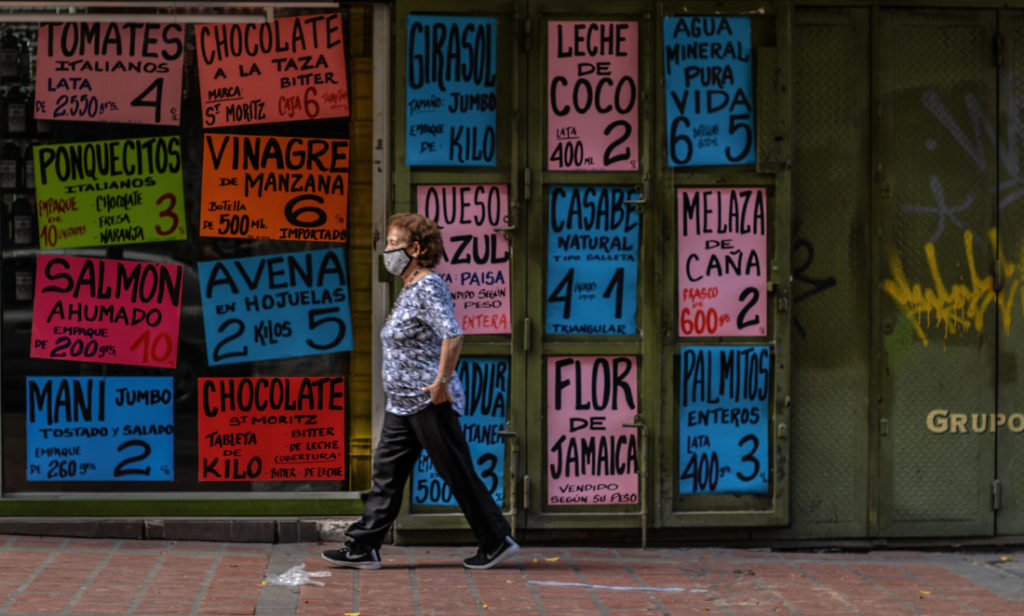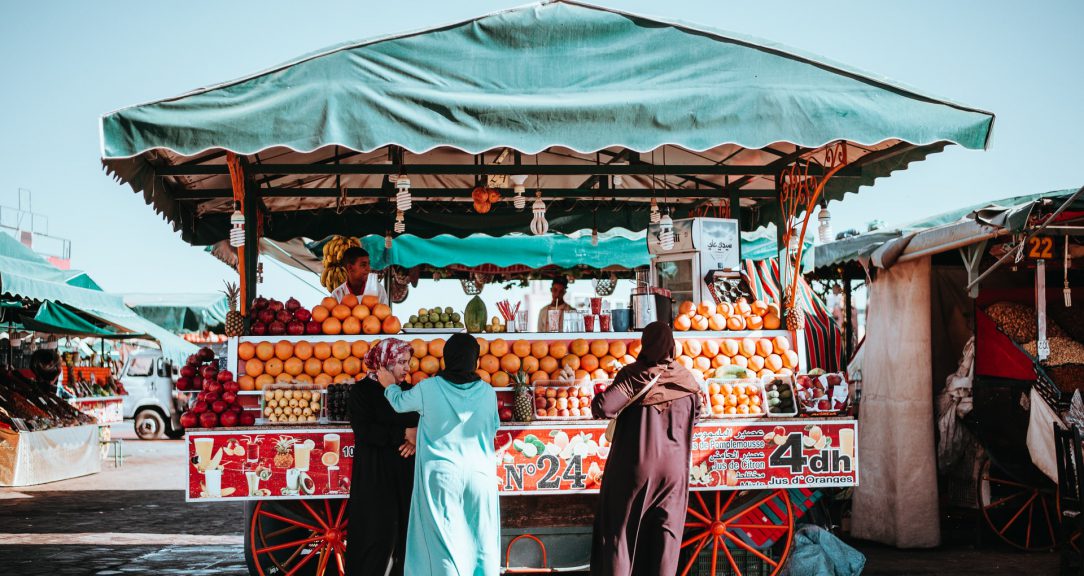It was just before Christmas in 2020, and 25-year-old Anyeli García was trying to scratch together $100 to buy new clothing for her three children. Christmas presents weren’t on the cards, but she hoped her children could look nice for the holidays. The infrequent remittances from her mother, who is living in Ecuador, are indispensable.
Anyeli lives on remittances, but the wait for funds to arrive is getting longer, and there are other complications. She doesn’t have identification or the chance of obtaining it, because she’s not able to travel to the state where she was born to apply for the documents. This means it’s not possible to join her mother and other family in Ecuador. She can’t enroll her children in school because they don’t have birth certificates. And Anyeli can’t work regularly because no one can watch her children. Sometimes she cleans houses for $5 a shift, but this isn’t much.
The little family lives in the hills of Caucagüita in Petare, an economically disadvantaged area of Caracas. Without employment or support from the state — apart from a monthly ration of food that contains 6 or 7 kilograms of rice, 2 kilos of pasta, a kilo of sugar and a liter of oil — Anyeli relies on the money that her mother and two siblings can send her.
The situation is complicated by the fact that foreign currency cannot legally be sent to Venezuelan banks; citizens have to go through people who specialize in exchanging foreign currency into Venezuelan sovereign bolívars.
This convoluted method has exacerbated an ongoing financial crisis that began with shortages in 2010, and a major drop in the price of oil that pushed inflation to 1,700,000% in 2018. Even with remonetization that year — one sovereign bolívar replaced 100,000 “strong” bolívars, which had replaced 1,000 bolívars in 2012 — one U.S. dollar is equal to about VES 1.8 million.
And of course, on top of the ongoing economic crisis and international sanctions, the Covid-19 pandemic further burdened this country propped up by remittances.
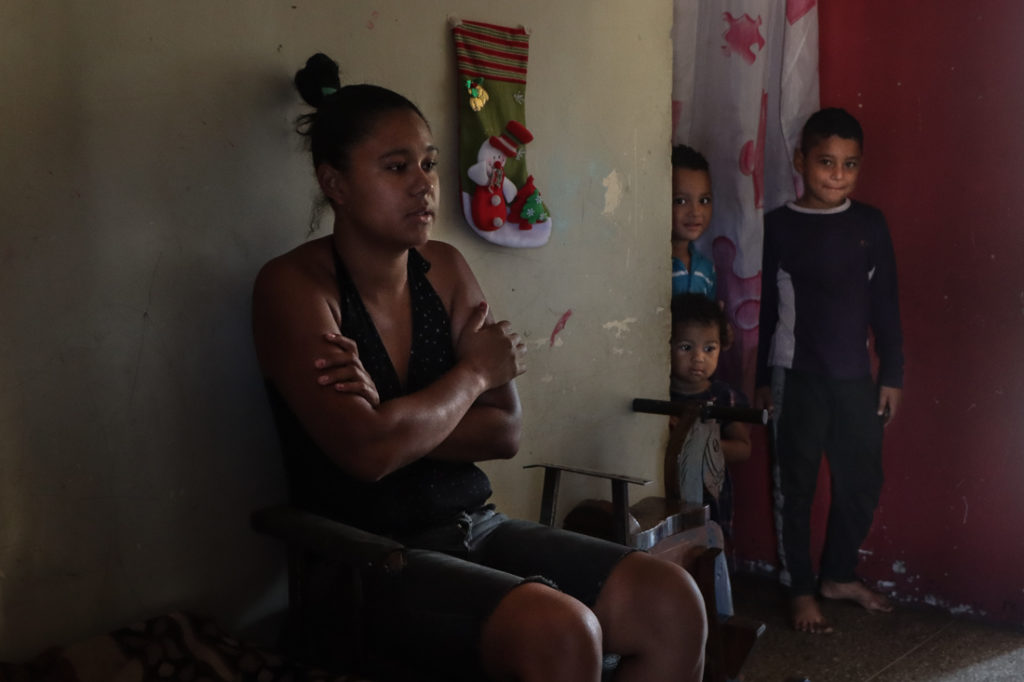
Relying on remittances
At least two out of every four families in the five floors of Anyeli’s building depend on help from relatives abroad. There are thousands of other families like hers who get by on the $20 to $50 sent to them each month. This money pays for gas on the black market, which can cost up to $15, or $20 for a water tank, cheese for $4, corn flour for $2, a kilo of chicken or red meat for up to $6. This could end up being VES 60 million, 45 times the minimum wage.
About a third of Venezuelan households receive money from relatives who went to live abroad between 2014 and 2019. This statistic isn’t from the government, but rather the Living Conditions Survey (Encovi) carried out by the Institute of Economic and Social Research at Andrés Bello Catholic University.
This same study found that 57% of the families that receive money from abroad are poor. Although remittances are not registered as cash imports, this money has an important impact on consumption rates. The grave economic situation has created a complex humanitarian crisis in which all sectors of the public administration have collapsed.
So the money that families receive from abroad is a lifeline. People are able to buy much more than just food and clothes. Venezuelans who receive money from relatives or friends abroad are able to pay for medicine and basic services such as gas, water and electricity. Although in Venezuela, citizens don’t have to pay for services such as water or electricity in many municipalities, the reality is that many services are nonexistent, and people turn to the black market to obtain them.
Agustina Páez has been receiving help from her son in the United States since 2016. He sends her what amounts to 80% of her income to cover expenses. The rest is scraped together from her pension (on average VES 1.2 million, or about $1); bonds in bolívars; and so-called petros. She receives petros, the cryptocurrency created by the Venezuelan government in 2018, for being registered in the Patria system, created in 2017 to subsidize economically vulnerable Venezuelans and allow them to access benefits and certain services such as gasoline.
She often stays at home because of her hypertension and ill health, and depends on the few family members still in the country to help her with food and medicine when her son’s money arrives. But this only covers her basic needs — taking a taxi, or buying sweets, ham, yellow cheese or whole milk are luxuries she can no longer afford.
“My son sends me about $100 a month, and I get it in bolívars in my account. With that, I buy everything I need and get by,” Páez says. “Before, I used to be able to buy many things, but now it’s barely enough because things are too expensive and a single medication can cost up to $30.”
The financial consulting firm Ecoanalítica reported that Venezuela received a record $3.5 billion in remittances in 2019. But the Covid-19 pandemic cut that total to just $2 billion in 2020, and inflation continued to devalue the bolívar, reaching 1,858% over 12 months.
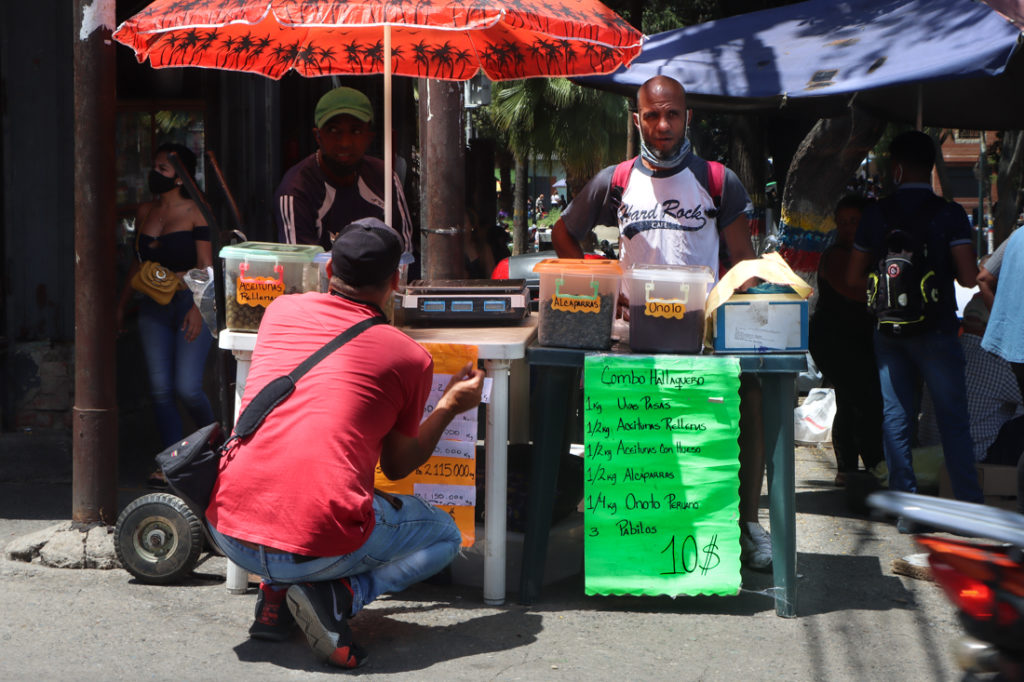
The escape valve
Maduro said in late 2019 that the use of the dollar was “an escape valve” in light of the economic crisis. But in this context, remittances are unquantifiable. Most of them are managed in transactions that sidestep official processes, since the use of foreign currency has been complicated in Venezuela due to foreign exchange restrictions and more recent sanctions.
Henkel García, a financial analyst and director of Econométrica, indicated that the impossibility of registering the amount of remittances entering Venezuela results from the absence of a formal mechanism for sending them.
“Dollars should be going through the central bank, and the bank should convert them into bolívars at the current exchange rate,” the economist says. “But this is not the case; some of it arrives in cash, although not so much because of the inconveniences that this brings. So most of it depends on people who have someone to sell those dollars to, buyers that require foreign currency in Venezuela.”
It was only in 2020 that national banks adapted and started to allow citizens to deposit cash dollars. Remittances therefore arrive in the country through people with accounts abroad who travel and bring back cash; and through Venezuelans outside the country who transfer or pay dollars to administrators who send the cash, then converted into bolívars, to Venezuelan accounts.
García notes that the billions of dollars that arrive as remittances in an economy like Venezuela’s, where exports only total about $11 billion, seems like a high amount. But it’s insufficient when you consider that Venezuela annually requires $1,000 per capita, which is close to $30 billion per year. Experts estimate there is at least $2 billion and as much as $4 billion in U.S. currency circulating in the country.
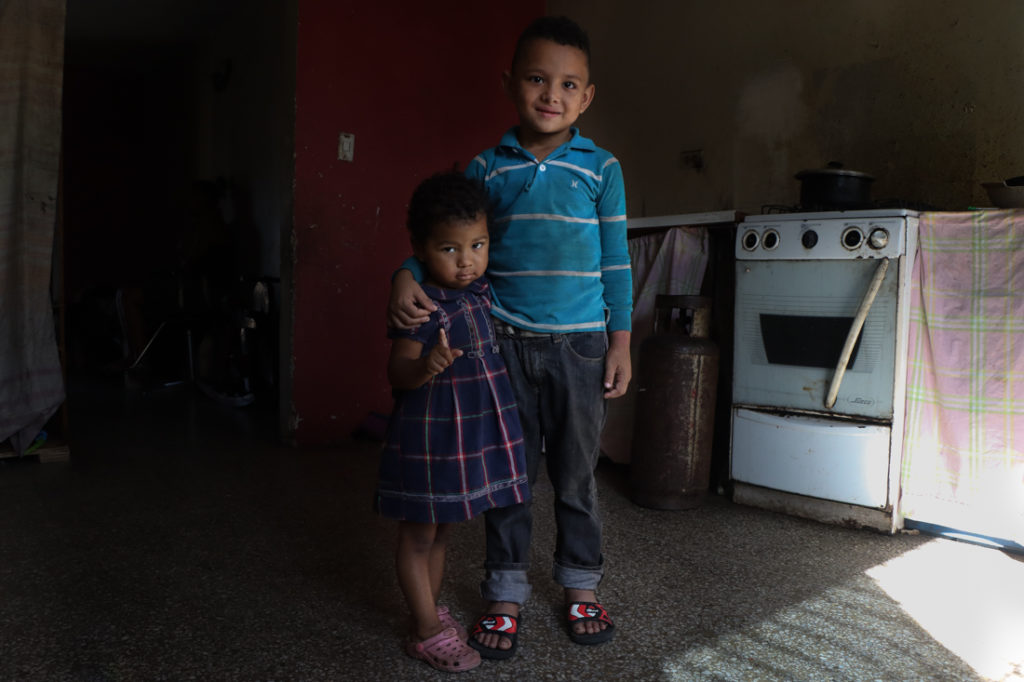
Feeding the need
Alexandra Rojas and her brother illustrate what Henkel García talks about. Rojas’ brother has been living in Peru for three years and has found a stable source of income by exchanging and sending remittances. He can now transfer VES 50 million every two weeks to his family, who live in a rural town in Aragua state in central Venezuela.
Rojas’ brother has a small exchange company with two partners in Peru, catering to migrants from Venezuela. They hired three women to exchange the funds to bolívars within Venezuela.
Erick Soto, another Venezuelan migrant who lives in Argentina, is a computer engineer and has a stable job. Additionally, he runs a small exchange company he started in response to the need of many Venezuelans around him to help those still in their home country.
“Four years ago, changing [currency] was more complicated. You looked for those who were arriving from Venezuela and brought bolívars, and you gave them the pesos. That person transferred them to Venezuela. But over time I started to do exchanges and realized that business was coming from across the borders,” Soto says.
Soto and all those who do exchanges keep in close contact with exchange houses in Cúcuta, a city on the Colombian border with Venezuela. It’s from here that they mobilize the bolívars received from border crossers and obtain the Venezuelan currency with which they send remittances. It’s also why platforms like Zelle have gained popularity, because users can manage money in foreign accounts on their smartphones.
If we didn’t receive what my brother sends — that which all relatives who live abroad send — we in Venezuela would not even have enough to eat.
Despite diminished business due to the pandemic, Soto has maintained a portfolio of 15 to 30 clients per month who send anywhere from $20 to $300 to their relatives and friends in Venezuela. It’s an exchange that allows Venezuelan families, who often have salaries that do not exceed $4 per month, to survive. Their importance is defined in Rojas’ words: “If we didn’t receive what my brother sends — that which all relatives who live abroad send — we in Venezuela would not even have enough to eat.”
Ecoanalítica estimates that two-thirds of all transactions in Venezuela are carried out in U.S. dollars. In January 2021, Maduro announced he was going to authorize debit cards for dollar accounts and enable wire transfers between banks.
That might speed the wait for Anyeli in Petare to receive deposits from her family to buy bread, corn flour, mortadella and cheese to feed her children. Her two eldest children want to be lawyers, and, although they are not yet in school, Anyeli believes that she will soon be able to obtain their birth certificates and register them so that they can move forward, study and become professionals.
Finally on 21 December 2020, Anyeli received the last $30 she was waiting on from her mother, sent via a friend’s bank account. It was a huge relief — it meant she could go to the local market and buy the Christmas outfits for her children: two pairs of shoes at $10 a pair, four shirts and shorts for her two boys, and two dresses and a pretty pink tutu for her daughter.
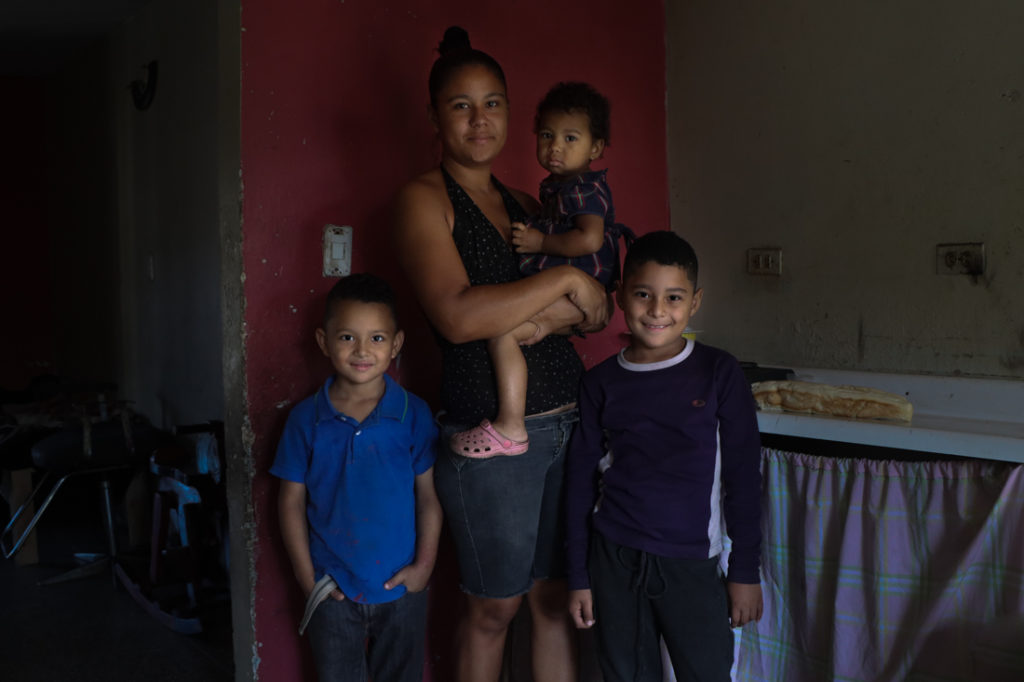
Read more
Sign up to keep up to date with ReThink Q.
